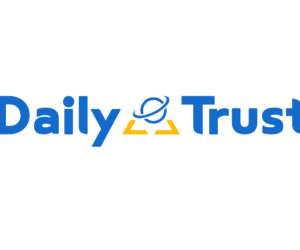Artificial Intelligence has quietly slipped out of science fiction and moved into everyday business. What was once discussed only at global tech conferences is now shaping boardroom conversations in Lagos, Abuja, Port Harcourt and every state in Nigeria.
From how banks detect fraud to how retail shops understand their customers. It is already here, influencing decisions that affect profits, jobs, and competitiveness.
For many chief executives, the challenge is no longer whether AI matters. The real challenge is how to make sense of it and decide where it fits into their business.
AI is not magic. It is a tool.
It does not turn a struggling business into a successful one overnight. Instead, it processes data, identifies patterns, and makes predictions at speeds no human can match.
Think of it the way our grandparents first thought of electricity. Electricity by itself did nothing. But once it powered factories, transportation, and communication, it transformed economies. Artificial Intelligence works in much the same way. It creates value only when tied to a real business problem.
Every sector is being touched by this shift. Farmers are beginning to explore AI tools for predicting rainfall and monitoring crop health. Retailers are using AI to forecast demand and stock products more efficiently. In healthcare, doctors rely on AI to support faster diagnosis. Banks use it to spot fraud in real time.
Even smaller businesses are finding ways to use it. A salon in Surulere can run a chatbot to handle customer bookings. A fashion entrepreneur can use AI tools to create marketing content in minutes. The point is simple: ignoring AI is risky. Competitors who adopt it will quickly gain an edge.
But here’s a truth that many businesses ignore. Artificial Intelligence is only as strong as the data it runs on. If the information going in is incomplete or messy, the results will be misleading. That is why some early AI projects collapse. The problem is not the technology itself but the shaky foundation of data.
For Nigerian CEOs, this means asking hard questions: Are your records accurate? Are your systems connected? Is the data secure? You don’t have to become a data scientist, but you do need to ensure your company has the right culture and discipline around data. That investment will outlast any single AI tool.
There is also the fear that AI will take jobs. The reality is more balanced. AI takes on repetitive, high-volume work, but people remain essential.
Customer service agents already see chatbots answering routine questions, leaving them with more time to handle complex or sensitive cases. HR managers use AI to filter CVs, but the final hiring decision is still theirs. Accountants use AI to flag unusual transactions, but interpretation and judgment remain human tasks.
The role of the CEO here is critical. Staff must know that AI is not a threat to their survival but a partner in their work. This requires training, communication, and a culture that values adaptability. Companies that strike this balance, combining machine efficiency with human insight will be the winners.
Another concern that cannot be ignored is ethics. AI is powerful, but unchecked, it can also cause harm. Algorithms may unintentionally discriminate, spread misinformation, or invade privacy. Regulators across the world are tightening rules, and Nigeria will not be left behind.
For businesses, this is not just about compliance. It is about trust. Customers, employees, and investors are watching. A company that uses AI responsibly will build loyalty. One that cuts corners risks serious reputational damage.
This means being clear about how AI decisions are made, avoiding bias, and protecting customer information. Ethics in AI is no longer optional; it is part of good business practice.
Starting small is often wiser than chasing grand AI projects. A bank may test AI on fraud detection before expanding into loan assessment. A logistics company might begin with route optimisation before trying larger, more complex deployments. By proving success in one area, CEOs can build confidence and expand gradually.
This step-by-step approach reduces risk and helps employees see AI as practical and useful, not as a distant threat.
Importantly, CEOs themselves don’t need to understand the technical side. You do not have to know how a neural network works. What matters is clarity of vision.
Why are you using AI? How does it fit into your overall goals? What results are you chasing, and how will you measure them? Like a conductor leading an orchestra, your role is to set the tempo and keep the players in harmony.
AI is not a project for the IT department alone. It cuts across sales, operations, finance, HR, and marketing. That is why successful companies build cross-functional teams to oversee it.
Collaboration outside the company also matters. Partnerships with start-ups, and consultants can help businesses adopt AI faster and more cost-effectively. Nigerian firms don’t need to reinvent the wheel; many tested solutions already exist.
One thing is certain: the pace will not slow down. Tools that cost millions a decade ago are now available by subscription. Models that seemed impossible are already in use. The landscape keeps shifting, and strategies must be flexible.
The businesses that fail will not be those that ignored AI entirely. They will be those that started but refused to adapt as the field evolved.
At the heart of it all is mindset. Some CEOs approach AI with fear, others with indifference. But those who see it as a chance to innovate and improve are the ones who benefit most.
AI does not replace leadership. It strengthens it. With machines handling data-heavy tasks, leaders have more time for vision, relationships, and impact.
Every Nigerian CEO today, whether running a small SME or a multinational, is now in some sense an “AI CEO.” The decisions made in the next few years will determine who thrives and who falls behind.
AI is here. It is practical. It is powerful. And for those ready to act, the opportunity is wide open.
AIFORSME helps businesses harness the power of Artificial Intelligence to drive growth, automation, and efficiency. From strategy and consulting, to AI-powered tools and process optimisation, we support CEOs and teams to adopt AI in practical, profitable ways. You can send an email to [email protected]. Let’s explore how AI can transform your business.









